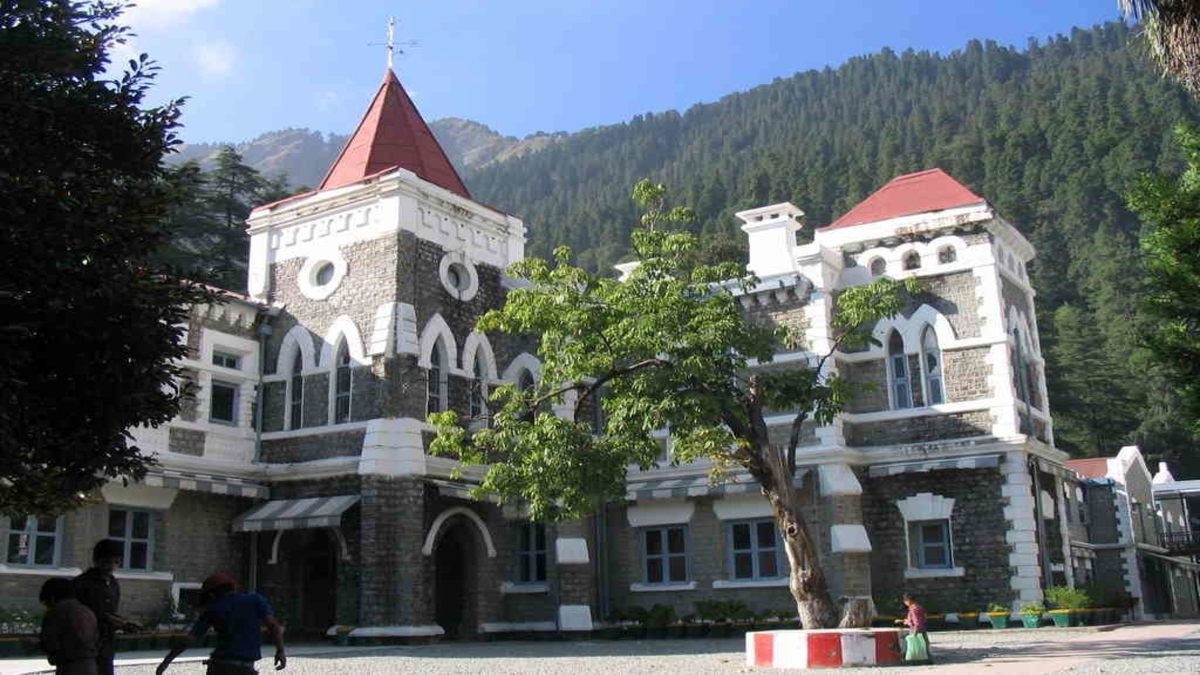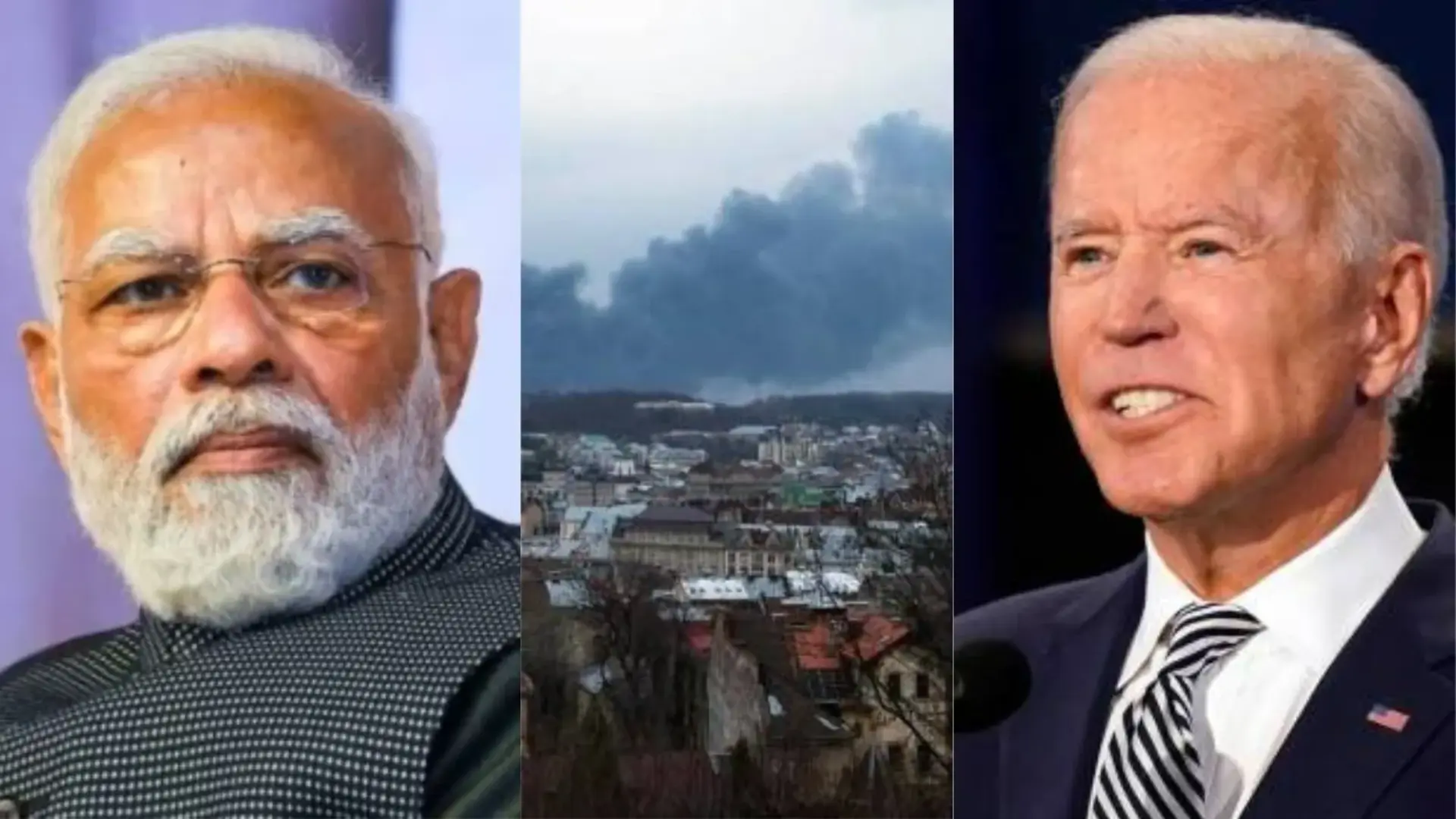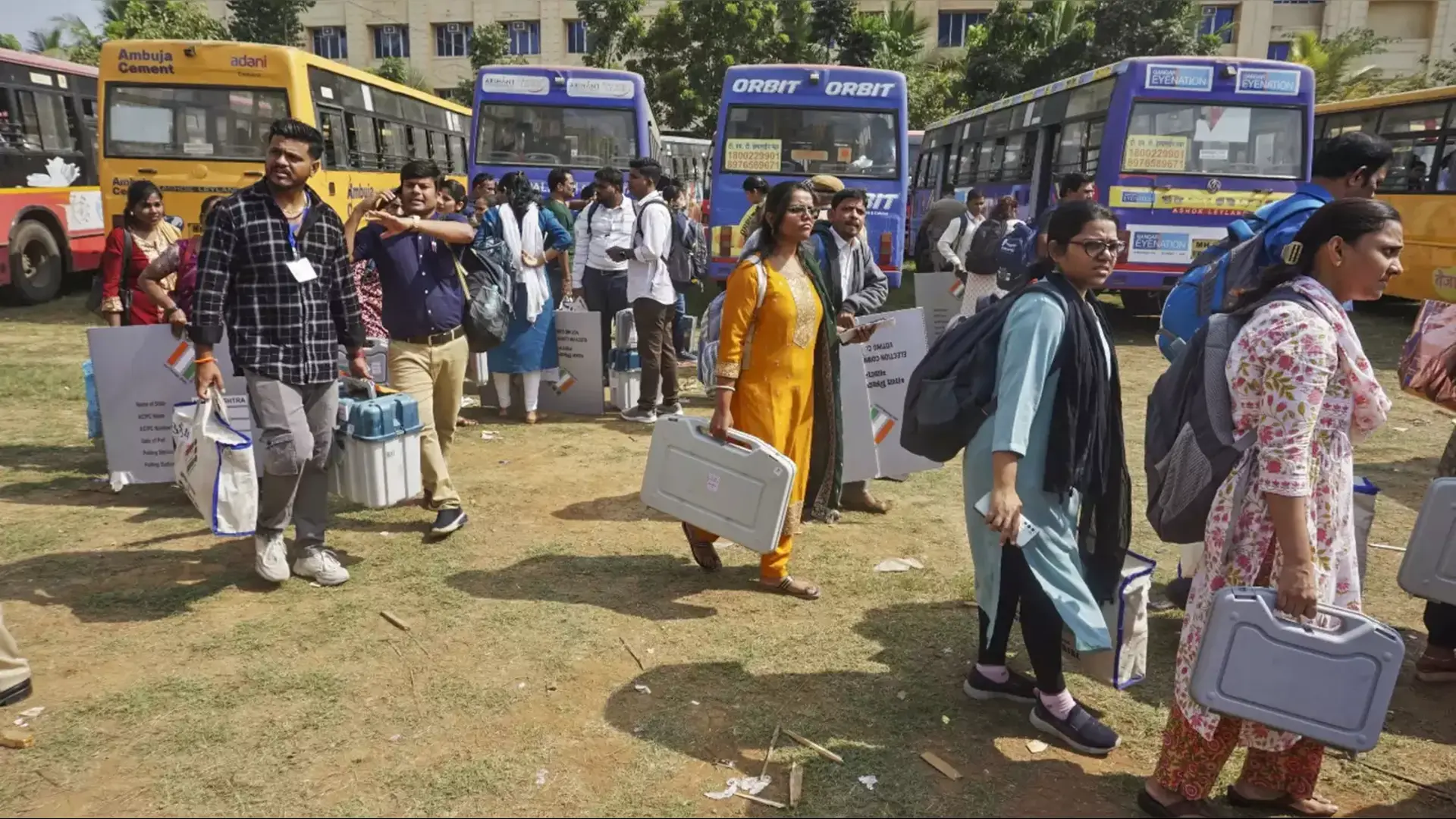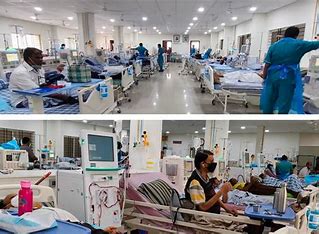
In a significant judgement pertaining to prisoners rights and affecting them directly, the Uttarakhand High Court has in a latest, landmark, laudable and learned judgement titled Sanjeev Kumar Akash v. State of Uttarakhand & Ors in Writ Petition (PIL) No. 25 of 2021 delivered on 12 April 2021 has held that police personnel cannot be appointed as Jail Superintendent. A Division Bench comprising of Chief Justice Raghvendra Singh Chauhan and Justice Alok Kumar Verma observed that we have come to the age of “Reformation and Rehabilitation of Prisoners”. It held that the purpose of police is very different from that of Jail Superintendents and as a natural corollary, their trainings and psyche are poles apart. Hence the former cannot possess the position of the latter.
To start with, Chief Justice Sri Raghvendra Singh Chauhan who has authored this notable judgment for a Bench comprising of himself and Justice Alok Kumar Verma of the Uttarakhand High Court sets the ball rolling by first and foremost pointing out in para 1 that, “Mr. Sanjeev Kumar Akash, the petitioner, has filed the present Public Interest Litigation in order to challenge the order dated 12.02.2021, passed by the Secretary, Department of Home, the respondent no. 2, whereby the Officers of the Police Department have been given the additional charge of the office of the Senior Superintendent/Superintendent of Jail at Sitarganj, Haldwani, Haridwar, Dehradun and Roorkee. The petitioner has further challenged the consequential order dated 12.02.2021, passed by the Inspector General of Prisons, the respondent no. 3, whereby the Officers of the Police Department have been transferred, and posted with the additional charge of Senior Superintendent/Superintendent of Jail at various prisons in the State of Uttarakhand.”
While elaborating on the facts of the case, the Bench then enunciates in para 2 that, “Briefly stated, the facts of the case are that, as per the structure in the Department of Prison in the State of Uttarakhand, there are three sanctioned posts of Senior Superintendent of Jail, and nine sanctioned posts of Superintendent of Jail. Out of the nine sanctioned posts of Superintendent of Jail, four posts are to be filled up by way of direct recruitment, and five posts are to be filled up by way of promotion from the post of Jailor. Presently, one post of Senior Superintendent of Jail, and four posts of Superintendent of Jail, have been filled up. Therefore, currently two posts of Senior Superintendent of Jail, and five posts of Superintendent of Jail are lying vacant. According to the State Government, considering the difficulties faced in running the Jails properly, it has taken a conscious decision to give additional charge of Senior Superintendent of Jail, and Superintendent of Jail, to officers of the Indian Police Service (IPS). Hence, the present Public Interest Litigation before this Court.”
On the one hand, the Bench first dwells on the petitioner’s contentions in para 3 stating that, “Ms. Kamini Jaiswal, the learned Senior Counsel for the petitioner, has raised the following contentions before this Court :-
Firstly, that the job responsibility and the training of the Police Officers, and those of the Officers of the Jail Administration, stand on different plains. The duty of the Police Officers is preventive and penal, and spans the arena of investigation, prevention and protection, and maintenance of law and order. On the other hand, with the emerging modern trends in penology and theories of punishment, the fundamental duty of the Officers of the Department of Jail is the protection, the reformation, and the rehabilitation of the prisoners. Since the job responsibilities are of different nature, the psychological makeup, the thinking, the conduct of the Police Officers and the Jail Officers, perforce, has to be quite different. Whereas, generally a Police Officer sees an offender as a culprit, as a person who has violated the law, and thus deserves to be condemned and punished, the Officers of the Department of Prison see prisoners as human beings, who have erred, who need to be reformed, who need to be rehabilitated, and brought back as productive members of the society. Thus, the very philosophy behind the interaction between a Police Officer and an offender, and the interaction between a Jail Officer and the prisoner, stand on a different footing. Therefore, one cannot be confused with the other.
Secondly, keeping this distinction in mind, even law has bifurcated these two services into two different classes; the laws have empowered them differently. Therefore, to confuse these two classes would be violative of the fundamental philosophy, which govern these two different services.
Thirdly, this bifurcation of the two departments, and the philosophy behind working of the two departments, is not unique to India. But has universal application throughout the world. According to the learned Senior Counsel, the United Nations has issued “Standard Minimum Rules for the Treatment of Prisoners”, better known as “the Nelson Mandela Rules”. These Rules prescribe the “good principles and practice in the treatment of prisoners and prison management”. Rules 74 to 82 deal with “Institutional Personnel”. Rule 74 provides for “careful selection of every grade of the personnel”. It emphasises “on their integrity, humanity, professional capacity, and personal suitability for the work that the proper administration of prisons depends”. Rule 74(3) further stresses on the need for appointment of prison personnel “on a full-time basis”. Rule 75(2) states that “before entering on duty, all prison staff shall be provided with training tailored to their general and specific duties, which shall be reflective of contemporary evidence-based best practice in penal sciences”. Rule 76 further states that the training referred to in Rule 75(2) shall include, at a minimum, training on “rights and duties of prison staff in the exercise of their functions, including respecting the human dignity of all prisoners, and the prohibition of certain conduct, in particular torture and other cruel, inhuman or degrading treatment, or punishment.” Rule 79 further states that “the Prison Director (Superintendent of Jail in India) shall devote his or her entire working time to official duties, and shall not be appointed on a part-time basis. He or she shall reside on the premises of the prison or in its immediate vicinity.”
Relying on the Nelson Mandela Rules, the learned Senior Counsel has emphasised that the Superintendents of Jail are required to undergo a particular training, which will inculcate a sense of dignity of all the prisoners, will make them humane, and sensitise them to the plight of the prisoners, to their families, and to the prison conditions. The learned Senior Counsel has further stressed on the need for appointing the Senior Superintendent/Superintendent of Jail on a full-time basis, rather than on a part-time basis.
Fourthly, referring to the Uttar Pradesh Jail (Group A and B) Service Rules, 1982 (for short “the Rules, 1982”), the learned Senior Counsel has submitted that Rule 3(k) defines the post of “Superintendent, District Jail” to mean “the whole-time Superintendent, Jail appointed in accordance with the 1982 Rules”. According to Rule 5(6) of the Rules, 1982, the post of Superintendent of District Jail is to be filled up fifty percent by direct recruitment, and fifty percent by promotion from amongst the regularly appointed Deputy Superintendents/Jailors with a minimum of five years’ service as Deputy Superintendents, or Jailors or both. Moreover, Rule 14 deals with “determination of vacancies”. Rule 15 deals with the “procedure for direct recruitment”. Rule 16 deals with the “procedure for recruitment by promotion to the post of Superintendent, District Jail”. Therefore, according to the learned Senior Counsel, the procedure for making an appointment to the post of Senior Superintendent/Superintendent of Jail is clearly prescribed by Rules 14, 15 and 16 of the Rules, 1982. These Rules do not permit ad-hoc appointment of Police personnel on the post of Senior Superintendent/Superintendent of Jail. Therefore, the impugned orders are clearly in violation of the Rules, 1982.
Fifthly, even the Code of Criminal Procedure, prevents the keeping of an undertrial prisoner in police custody beyond a stipulated period of time. According to Section 167 of Cr.P.C, an accused cannot be detained in police custody beyond a period of fifteen days. In case the investigation is not completed within a period of ninety days, for offences punishable with death, imprisonment for life or imprisonment for a term of not less than ten years, the offender would have to be granted bail under Section 167(2)(a)(i) Cr.P.C. Therefore, even the Cr.P.C. does not envisage keeping of undertrial prisoners in police custody for too long a period. Even otherwise, while keeping an offender in judicial custody, he/she cannot be kept beyond a period of sixty days or ninety days in case the investigation were not completed within the stipulated period of time. Moreover, in case the investigation were to be completed within the stipulated period of sixty days or ninety days, and in case bail were not granted by a competent Court, an undertrial is required to be kept in judicial custody. But, by appointing police personnel as Senior Superintendent/Superintendent of Jail, for all practical purposes, the custody is suddenly changed from a judicial one to a police one. Therefore, the learned Senior Counsel submits that the impugned orders violate the letter and the spirit of Section 167 Cr.P.C.
Lastly, despite the fact that a prisoner loses the freedom of movement, he/she continues to enjoy the other fundamental rights, as guaranteed by the Constitution of India. Therefore, Article 21 of the Constitution of India, guaranteeing protection of Life and personal liberty, continues to shine even in the dark corners of a prison cell. According to the learned Senior Counsel, once a procedure has been established by law that too a procedure backed by certain penological philosophy- it cannot be violated by the State. Therefore, the State is legally bound to implement the service rules as contained in the Rules, 1982, to implement the requirements of Cr.P.C, to implement the constitutional philosophy, as embodied in the Preamble of the Constitution of India, and to implement the “Nelson Mandela Rules”. Hence, according to the learned Senior Counsel, the impugned orders deserve to be set-aside by this Court.”
On the other hand, the Bench then further states about the States contention in para 4 wherein it is put forth that, “On the other hand, Mr. Anil Kumar Bisht, the learned Additional Chief Standing Counsel for the State, has raised the following counter-contentions before this Court :-
Firstly, in the order dated 17.11.2006, issued by the Principal Secretary, Uttaranchal Administration, it was clearly mentioned that the Inspector General of Prisons would either be the Secretary, Home, or IAS officers, or of equivalent posts. Similarly, Additional Inspector General of Prisons would be from the post of Additional Secretary, Home/Joint Secretary, Home, or from PCS Cadre. In fact, even presently, the post of the Inspector General of Prisons is occupied by a person belonging to the IPS cadre. Therefore, the appointment of police personnel to the post of Senior Superintendent/Superintendent of Jail can certainly be made from Police Officers.
Secondly, considering the fact that presently there are two posts of Senior Superintendent of Jail, and five posts of Superintendent of Jail, which are lying vacant, considering the fact that direct recruitment to these posts would require some time, considering the fact that there is no one in the post of Jailors, who has completed five years of required service for being promoted to the post of Senior Superintendent/Superintendent of Jail, the State is justified in making Police Officers incharge of these two posts on a temporary basis. Therefore, the learned counsel has supported the impugned orders.”
As a corollary, the Bench then brings out in para 5 that, “In rejoinder, Ms. Kamini Jaiswal, the learned Senior Counsel for the petitioner, has pleaded that the letter dated 17.11.2006 does not support the case of the State. For, while the post of Inspector General of Prisons and Additional Inspector General of Prisons may be permitted to be filled up from IPS Officers, the post of Senior Superintendent/Superintendent of Jail is covered by the Rules, 1982. Once the Rules, 1982 have been promulgated, they cannot be diluted by a mere letter issued by the Principal Secretary. In fact, the appointment to the post of Senior Superintendent/Superintendent of Jail has to be strictly in accordance with the Rules, 1982.”
Needless to say, the Bench then after hearing the learned counsel and perusing the impugned orders as stated in para 6, it is then brought out in para 7 that, “Prisons are as ancient as human civilization. Initially, prisons were created as detention centres for detaining those who were threat to the political power. According to the Bhagavata Purana, an ancient text on the life of Lord Krishna, his parents, Devaki and Vasudeva, were imprisoned by Kansa, the King of Mathura. However, over the centuries, prisons were constructed for the purpose of punishing those, who violate the law. Soon the purpose of prisons was changed from detention to punishment. In ancient Athens, Socrates was imprisoned for punishing him for having corrupted the minds of the youth. Long imprisonment sentences catered to the retributory and deterrent theories of punishment.”
Quite alarmingly, the Bench then observes in para 11 that, “In 1835, Lord Macaulay presented a note to the Legislative Council in India as he was shocked by the horrifying and inhumane conditions prevalent in the Indian jails. The next year, on 02.01.1836, Lord William Bentick constituted a “Prison Discipline Committee”. The report of this Committee, submitted to Lord Auckland in 1838, revealed the rampant corruption, the laxity in discipline, and the abuse of men and women, who were imprisoned. However, surprisingly, the Committee rejected the thought of reforming the criminals.”
Going ahead, the Bench then further observes in para 12 that, “Over the years, the “Conference of Experts” held in 1877, and the “Fourth Jail Commission” in 1888, recommended that there should be a uniformity in all the Jails functioning in British India. Since Indians were seen as subjects and not as citizens, since the Britishers saw themselves as the Ruler, they recommended rigorous prison sentences, and even punishments within the confines of the Jails, such as whipping and solitary confinement, and keeping the prisoners in gunny clothing. The outcome of the recommendations of the “Conference of Experts” and the “Fourth Jail Commission” was the enactment of the “Prisons Act of 1894”. The Prisons Act, 1894 continues to govern most of the Jails even today.”
Needless to say, it is quite baffling that why no new Prisons Act has been passed even after 127 years till now? Why our lawmakers care a damn for the prisons? Why they never acted till now to meet the conditions of prisons to the present circumstances and now that of 1894 or 1895?
In this context, it has to be mentioned that the Bench then elucidates in para 13 stating that, “The “All India Jail Committee (1919-1920)” for the first time recommended the reformation and rehabilitation of offenders as one of the objectives of the prison administration. The Committee spoke about the adequate training of the prison staff, and about the separation of executive/custodial, ministerial and technical staff in prison service. The Committee believed that a different sort of training needs to be provided to the prison staff, than the training being provided to the police staff.”
Furthermore, the Bench then mentions in para 14 that, “After independence, a number of Committees have been constituted, beginning with the Jail recommendations made by Dr. W.C. Reckless, a U.N. Expert on Correctional Work. While submitting his report on “Jail Administration in India”, he advocated the reformative theory of punishment; he emphasised on specialized training of correctional personnel; he stressed on the need for a cadre of properly trained personnel staff.”
While underscoring the dire need to ameliorate the condition of prisons and prisoners, the Bench then states in para 15 that, “In 1972, the Ministry of Home Affairs, Government of India, appointed a “Working Group on Prisons”. In its report submitted in 1973, the Committee again emphasised the need for proper training of prison personnel. It also stressed that “prison administration should be treated as an integral part of the social defence components of national planning process”. Thus, the very basis for prison administration was to protect, reform and rehabilitate the prison population. Moreover, the prison population is not a population to be neglected. But it is a population, which needs to be encouraged to be productive. Therefore, skill upgradation is a sine qua non.”
While continuing in a similar vein, the Bench then observes in para 16 that, “In 1980, the Government of India constituted an “All India Committee on Jail Reforms” under the chairmanship of Hon’ble Mr. Justice A. N. Mulla. The Mulla Committee submitted 658 recommendations. According to the Committee, prisons in the country shall endeavour to reform and reassimilate offenders in the social milieu by giving them appropriate correctional treatment. One of the most important recommendations is that “prison services shall be developed as a professional career service. The State shall endeavour to develop a well-organized prison cadre based on appropriate job requirements, sound training and proper promotional avenues. The efficient functioning of prisons depends, undoubtedly, upon the personal qualities, educational qualifications, professional competence and character of prison personnel. The status, emoluments and other service conditions of prison personnel should commensurate with their job requirements and responsibilities. An All-India Service, namely the ‘Indian Prisons and Correctional Service’ shall be constituted to induct better qualified and talented persons at higher echelons. Proper training of prison personnel shall be developed at the ‘national, regional and State levels’.”
Quite significantly, the Bench then lays bare in para 17 that, “On 17.07.2009, the Ministry of Home Affairs, Government of India had written to the Principal Secretary (Prison)/Secretary (Home) (In-charge of Prisons) – All State Governments / UTs DGs/ IGs incharge of prisons- All State Governments / UTs, wherein it had emphasised the large number of judgments delivered by the Hon’ble Supreme Court with regard to the prison administration and the jail system prevalent in India. It had further made certain recommendations as under:-
(i) Establishing well equipped training infrastructure in the State, with adequate skilled and well qualified instructional staff, to cater to the normal needs of basic and in-service training for the prison staff in different discipline.
(ii) Creating adequate posts for prison staff as per norms in different categories, commensurate with operational needs of safe custody, reformation, rehabilitation, health care, legal assistance etc.
(iii) Filling up all the vacancies, presently running up to 17.58% (in 2006) within time bound frame and ensure proper cadre management through timely trainings, promotions, recruitments etc.”
While dwelling on the yeoman role of the Apex Court, the Bench then puts forth in para 18 that, “Over the decades, the Hon’ble Supreme Court has rushed to the rescue of the prisoners. The Apex Court has not only given the protection of Article 21 of the Constitution of India to the prisoners, but has also emphasised on the penological philosophy of reformation, and rehabilitation of the prisoners. It has, thus, stressed on the need for having a well-trained prison staff, who would cater to the needs of the prisoners on a full-time basis.”
Quite pertinently, the Bench then observes in para 19 that, “Recently, in the case of Inhuman Conditions In 1382 Prisons, In re [(2018) 18 SCC 777], keeping in mind the dire necessity of reforming in prison administration, and the prison management, the Hon’ble Supreme Court has constituted a Supreme Court Committee on “Prison Reforms” consisting of : (i) Hon’ble Mr Justice Amitava Roy, a former Judge of the Supreme Court as its Chairperson, (ii) Inspector General of Police, Bureau of Police Research and Development as its Member, and (iii) Director General (Prisons) Tihar Jail, New Delhi as its Member.
The Committee has made the following recommendations with regard to the staffing patterns in the jails:
“RECRUITMENT OF STAFF
The Hon’ble Court may issue following directions in this regard:-
(a) All State Governments will hold special recruitment drives to fill up the existing vacancies in different ranks with the following timelines.
(i) In case of regular recruitment against permanent vacancies, the recruitment process should start within three months and should be completed within one year in the maximum.
(ii) All promotional vacancies should be filled up within six months”.”
Of immense significance is what is then stated in para 20 that, “At the International level, the United Nations has issued the “Nelson Mandela Rules”, which deal with the “Standard Minimum Rules for the Treatment of Prisoners”.
Please read concluding on link4din.com/guardians-numeric-wisdom
As mentioned hereinabove, these Rules prescribe the accepted good principles, and practices in the treatment of prisoners and prison management. Rules 74 to 82 deal with “Institutional Personnel”.”
On these Rules, it is first and foremost stated in para 21 that, “Rule 74 is as under :-
“Rule 74
1. The prison administration shall provide for the careful selection of every grade of the personnel, since it is on their integrity, humanity, professional capacity and personal suitability for the work that the proper administration of prisons depends.
2. The prison administration shall constantly seek to awaken and maintain in the minds both of the personnel and of the public the conviction that this work is a social service of great importance, and to this end all appropriate means of informing the public should be used.
3. To secure the foregoing ends, personnel shall be appointed on a full-time basis as professional prison staff and have civil service status with security of tenure subject only to good conduct, efficiency and physical fitness. Salaries shall be adequate to attract and retain suitable men and women; employment benefits and conditions of service shall be favourable in view of the exacting nature of the work.””
As we see, the Bench then states in para 22 that, “Rule 75 is as under :-
“Rule 75
1. All prison staff shall possess an adequate standard of education and shall be given the ability and means to carry out their duties in a professional manner.
2. Before entering on duty, all prison staff shall be provided with training tailored to their general and specific duties, which shall be reflective of contemporary evidence-based best practice in penal sciences. Only those candidates who successfully pass the theoretical and practical tests at the end of such training shall be allowed to enter the prison service.
3. The prison administration shall ensure the continuous provision of in service training courses with a view to maintaining and improving the knowledge and professional capacity of its personnel, after entering on duty and during their career.””
As we progress, we see that the Bench then observes in para 23 that, “Rule 76 is as under :-
“Rule 76
1. Training referred to in paragraph 2 of rule 75 shall include, at a minimum, training on:
(a) Relevant national legislation, regulations and policies, as well as applicable international and regional instruments, the provisions of which must guide the work and interactions of prison staff with inmates;
(b) Rights and duties of prison staff in the exercise of their functions, including respecting the human dignity of all prisoners and the prohibition of certain conduct, in particular torture and other cruel, inhuman or degrading treatment or punishment;
(c) Security and safety, including the concept of dynamic security, the use of force and instruments of restraint, and the management of violent offenders, with due consideration of preventive and defusing techniques, such as negotiation and mediation;
(d) First aid, the psychosocial needs of prisoners and the corresponding dynamics in prison settings, as well as social care and assistance, including early detection of mental health issues.
2. Prison staff who are in charge of working with certain categories of prisoners, or who are assigned other specialized functions, shall receive training that has a corresponding focus.””
Not stopping, the Bench then adds in para 24 that, “Rule 79 is as under :-
“Rule 79
1. The prison director should be adequately qualified for his or her task by character, administrative ability, suitable training and experience.
2. The prison director shall devote his or her entire working time to official duties and shall not be appointed on a part-time basis. He or she shall reside on the premises of the prison or in its immediate vicinity.
3. When two or more prisons are under the authority of one director, he or she shall visit each of them at frequent intervals. A responsible resident official shall be in charge of each of these prisons.””
Be it noted, the Bench then hastens to add in para 25 that, “Since India is a member of the United Nations, these Rules are equally binding on the country. Therefore, neither these Rules, nor the recommendations of the various Committees, nor the letter issued by the Ministry of Home Affairs, Government of India dated 17.07.2009, can possibly be ignored by the State.”
What’s more, the Bench then observes in para 26 that, “All these recommendations, and Rules are in conformity with the great transformation, which has occurred in the theory of punishment : from the theory of “Retribution And Deterrence”, we have come to the age of “Reformation and Rehabilitation of Prisoners”. These Committee recommendation and the Nelson Rules emphasize the need for carefully selecting the prison personnel, for providing rigorous training, both prior to their joining the service, and subsequent thereto, of the appointment being a full-time, regular appointment. It is only when these factors are inculcated in the prison administration that the prison system succeeds in protecting, reforming and rehabilitating the prisoners. Otherwise, it is a self-defeating proposition.”
Quite remarkably, the Bench then waxes eloquent to hold in para 27 that, “Needless to say, the purpose of the Police is not to reform, or to rehabilitate, but to prevent the occurrence of crime, and to punish the criminals. Therefore, the very training of a police personnel is carried out with a different purpose in mind, and with different goals prescribed by law. Thus, there is a vast difference in the philosophy that permeates the police administration, and the jail administration. Hence, even their training and the psychology of the police personnel and prison personnel are poles apart.”
No less remarkable is what is then divulged in para 28 that, “Keeping the differences in two systems, the Rules, 1982 clearly provide that the post of Superintendent, District Jail should necessarily has to be filled up in accordance with the Rules, 1982. Rule 5(6) of the Rules, 1982 is as under :-
“5(6) Superintendents, District Jails. – (i) 50 per cent of posts in the cadre by direct recruitment through the Commission.
(ii) 50 per cent of post in the cadre by promotion through the Commission from amongst regularly appointed Deputy Superintendents/Jailors with a minimum of 5 years services as Deputy Superintendents of Jailors or both.””
In the same vein, the Bench then points out in para 29 that, “Rule 14 of the Rules, 1982 is as under :-
“14. Determination of vacancies.- The appointing authority shall determine and intimate to the Commission the number of vacancies on the posts of Superintendents, District Jails to be filled during the year of recruitment as also the number of vacancies to be reserved for candidates belonging to the Scheduled Castes, Scheduled Tribes and other categories under Rule 6.””
Going forward, the Bench then envisages in para 30 that, “Rule 15 of the Rules, 1982 is as under :-
“15. Procedure for direct recruitment.- (1) Application for permission to appear in the competitive examination for direct recruitment shall be invited by the Commission in the prescribed form which may be obtained from the Secretary to the Commission on payment, if any.
(2) No candidate shall be admitted to the examination unless he holds a certificate of admission, issued by the Commission.
(3) After the results of the written examination have been received and tabulated the Commission shall, having regard to the need for securing due representation of the candidates belonging to the Scheduled Castes, Scheduled Tribes, and others under Rule 6, summon for interview such number of candidates as, on the result of the written examination, have come up to the standard fixed by the Commission in this respect. The marks awarded to each candidate at the interview shall be added to the marks obtained by him in the written examination.
(4) The Commission shall prepare a list of candidates in order of their proficiency as disclosed by the aggregate of-marks obtained by each candidate at the written examination and interview and recommend such number of candidates as they consider fit for appointment. If two or more candidate obtain equal marks in the aggregate, the name of the candidate obtaining higher marks in the written examination shall be placed higher in the list. The number of names in the list shall be larger but not larger by more than 25 percent of the number of vacancies. The Commission shall forward the list to the appointing authority.
Note. – The syllabus and rules for the competitive examination shall be such as may be prescribed by the Commission from time to time.”
Also, still ahead, the Bench then states in para 31 that, “Rule 16 of the Rules, 1982 is as under :- “16. Procedure for recruitment by promotion to the post of Superintendent, District Jail.- Recruitment by promotion to the post of Superintendent of District Jail shall be made on the basis of seniority subject to the rejection of the unfit in accordance with the Uttar Pradesh Promotion by Selection in Consultation with Public Service Commission (Procedure) Rules, 1970 as amended from time to time.””
Most significantly, the Bench then minces no words to state it upfront in para 32 that, “A bare perusal of these Rules of 1982 clearly reveals that the post of Superintendent of Jail necessarily has to be filled up either by direct recruitment (fifty percent), or by promotion (fifty percent). The Rules do not permit an ad-hoc appointment from any other service, much less the police service. Therefore, the post can be filled up either directly from candidates from the open market, or from the post of Deputy Superintendents/Jailors having a work experience of minimum of five years. Hence, the appointment of the police personnel, by the impugned orders, is clearly illegal.”
Equally significant is what is then pointed out in para 33 that, “Although the learned counsel for the State has tried to support the impugned orders ostensibly on the ground that the Inspector General of Prisons and the Additional Inspector General of Prisons can be appointed from the IPS cadre, the said argument is clearly untenable. For, once the Rules, 1982, which deal with Group A and B services, clearly provide a procedure for determination of vacancy, and selection and promotion for filling up the post, the said Rules cannot be deviated from. After all, it is a settled position of law that once a procedure has been established by law, it cannot be circumvented from. Therefore, merely because the post of Inspector General of Prisons, and Additional Inspector General of Prisons can be filled up from persons belonging to the IPS cadre, it does not empower the State to fill up the post of the lower echelons by posting police personnel on the post of Senior Superintendent/Superintendent of Jail.”
As a consequence, the Bench then holds in para 34 that, “For the reasons stated above, the impugned order dated 12.02.2021 passed by the Secretary, Department of Home, respondent no. 2, and the consequential order dated 12.02.2021, passed by the Inspector General of Prisons, respondent no. 3, are hereby set-aside. The State is directed to immediately fill up the posts of Senior Superintendent and Superintendent of Jail either through direct recruitment, or through promotion. Since the Rules permit ad-hoc promotion as a temporary measure, even ad-hoc promotions may be granted by the State till regular promotions are made. The said exercise shall be carried out as expeditiously as possible and preferably within one month from the date of receiving the certified copy of this judgment.” Finally, it is then held in para 35 that, “The Writ Petition is, hereby, allowed.”
No doubt, words cannot be adequate to describe the brilliance with which this judgment is written which is par excellence and substantiating them with relevant Rules followed in India and simultaneously backing them up with rules at international level as for instance the Nelson Mandela Rules issued by UN already dwelt in detail above dealing with the standard minimum rules for the treatment of prisoners. It is now abundantly and manifestly clear from the aforesaid discussion that we had on the ruling by a two Judge Bench of the Uttarakhand High Court comprising of Chief Justice Raghvendra Singh Chauhan and Justice Alok Kumar Verma that police personnel cannot be appointed as jail superintendents.















